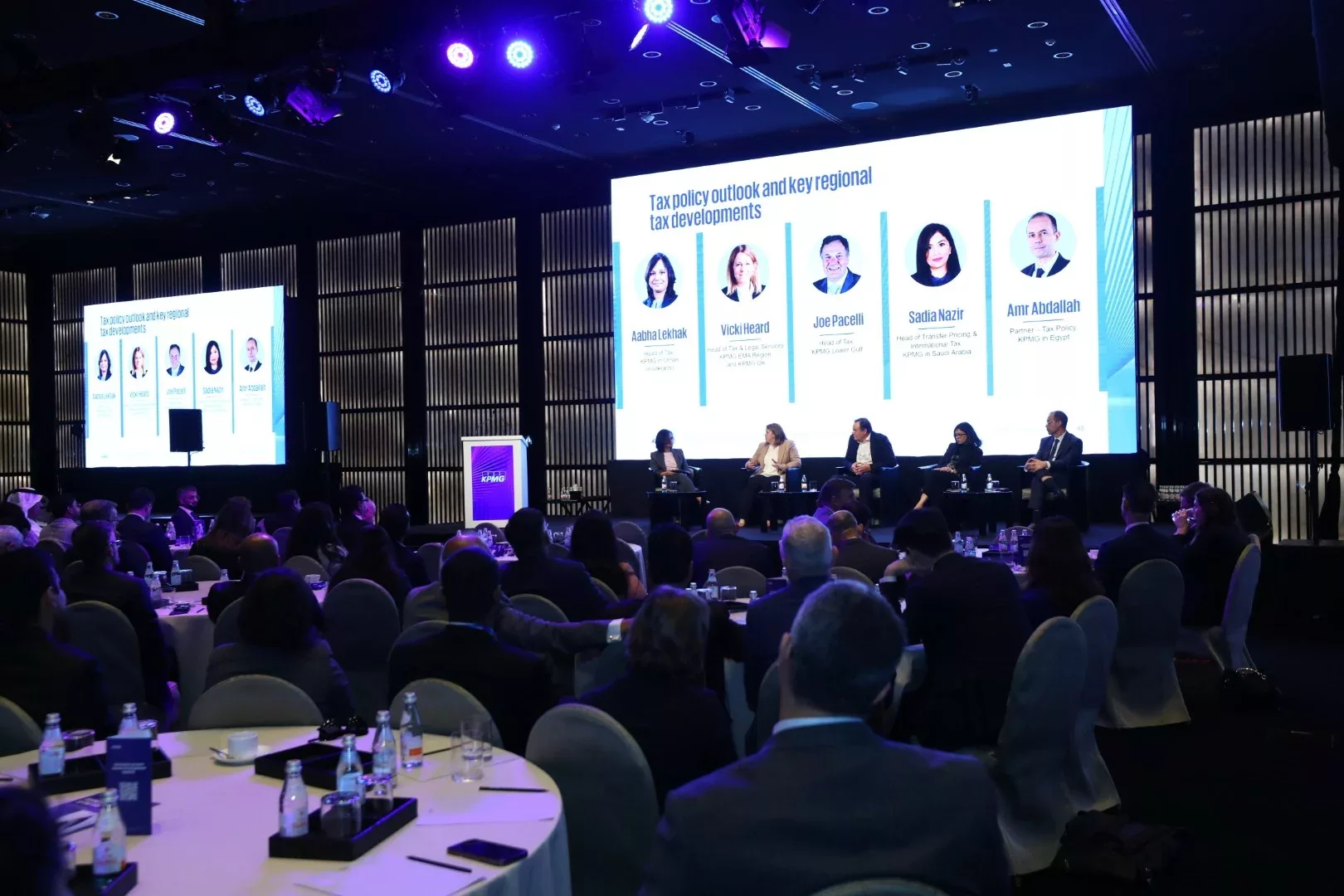KPMG Future-Ready Tax Summit Helps Companies Navigate the Evolving Tax Environment

Hundreds of delegates from 31 countries convened at the 2024 Future-ready Tax Summit for the KPMG Middle East, South Asia and Caspian (MESAC) organized by KPMG Lower Gulf to discuss key business implications of recent tax developments and trends. The MESAC region has witnessed an array of regulatory changes and tax developments over the past year as corporate tax becomes a priority and organizations grapple with evolving tax regulations. Delegates at the KPMG Summit heard regional and global perspectives from speakers, across an action-packed agenda featuring sessions designed to better equip tax leaders for today’s technical challenges and opportunities of the future.

Headlined Future-ready tax: Global innovation meets regional trends, the Summit brought together nearly 300 C-suite executives, leaders of tax and finance functions and KPMG senior executives to discuss pressing tax challenges and opportunities shaping the business landscape today. The Summit also gave tax leaders from the region an opportunity to network with peers and foster collaboration amidst a progressive tax landscape.
Joe Pacelli, Head of Tax, KPMG Lower Gulf, said, “The KPMG MESAC Tax Summit is a platform designed to foster meaningful dialogue and collaboration among tax professionals. This year’s Summit saw insightful discussions on critical tax matters and innovative strategies to navigate an ever-changing environment and addressed the most pressing tax issues facing businesses today. The event is an invaluable opportunity for tax professionals, business leaders, and policymakers to connect, share best practices, and stay ahead of the curve in a dynamic tax environment.”
The previous low-tax regime of the GCC region is rapidly evolving, with major changes in legislation being implemented across Saudi Arabia, UAE, Oman, Bahrain, and beyond. This shift aligns with the OECD/G20 Inclusive Framework on BEPS, which pushes for a minimum corporate tax rate of 15% for multinational enterprises. This was followed by the UAE introducing Corporate Tax (CT) in 2023.
This committed approach reflects a noticeable trend in the UAE’s tax landscape, as it adapts to international standards, including the Global Anti-Base Erosion Rules (BEPS Pillar 2) and Environmental, Social, and Governance (ESG) principles. The evolving tax landscape has placed tax squarely among the top growth risks for CEOs, underscoring the need for executive teams to prioritize tax transformation and digitization.
At the KPMG Summit, tax experts discussed how best to lead this function through a transformation to deliver better systems, information, and performance in the future. Global, regional, and local experts also debated how global trends in tax may impact the region, the future of the tax function, M&A, Base Erosion and Profit Sharing (BEPS), VAT and the impact of technology.
The Future-Ready Tax Summit highlighted that the evolution of taxation is closely intertwined with technological advancements. It emphasized that the trajectory of tax practices isn’t solely confined to regulatory adherence; instead, it necessitates a proactive embrace of technology, the cultivation of proficient teams, and strategic adaptation to dynamic circumstances. The speakers underscored the pivotal role of artificial intelligence (AI) in streamlining operational processes, data analysis, and strategic foresight within the tax domain. Additionally, partnerships with industry leaders such as Microsoft and Google exemplify KPMG’s commitment to pioneering AI-driven solutions tailored to address forthcoming tax complexities.
